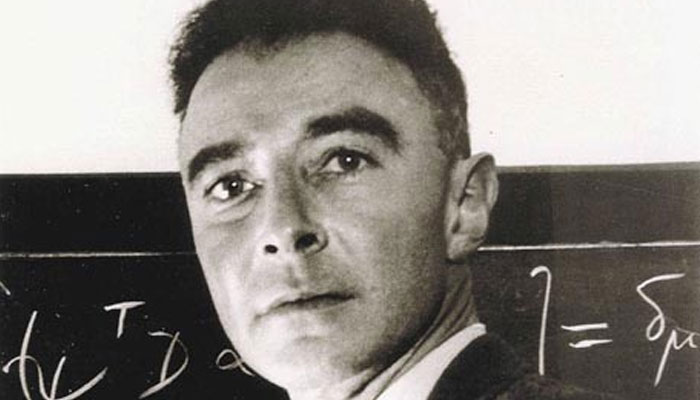Was Oppenheimer a Hindu or was it only an influence?
Misinterpretation of the Gita despite Oppenheimer's respect towards it becomes subject to criticism among Hindus
J Robert Oppenheimer, the theoretical physicist famously known as the "father of the atomic bomb", after making headlines in the world of Physics in 1945, has once again become the talk of the town following the release of his biopic, "Oppenheimer".
Following the release of Christopher Nolan's new biographical thriller, people learned that the theoretical physicist was highly influenced by the Bhagavad Gita, one of the holiest books in Hinduism.
However, after hitting big at the box office following its release on July 21st, one of the scenes in the biopic, depicting the scientist reading the Bhagavad Gita after sex, has become subject to criticism by the global Hindu population for "attacking their religion".
Viewers, especially in India, are demanding the controversial scene be censored.
As he was a keen learner of multiple languages including Greek, Latin, French and German. He even learned Dutch within six weeks.
However, Oppenheimer was introduced to the ancient Indian language of Sanskrit and the Gita, by Arthur W Ryder, a fellow professor at the University of California, Berkeley, who taught Sanskrit.
Ryder gave Oppenheimer private lessons in Sanskrit on Thursday evenings.
"I am learning Sanskrit," Oppenheimer wrote to his brother Frank, "enjoying it very much and enjoying again the sweet luxury of being taught".
While writing to his brother, Oppenheimer explained why discipline and work had always been his guiding principles. It pointed to the fact that he was enthralled by Eastern philosophy.
He wrote: "through discipline, though not through discipline alone, we can achieve serenity, and a certain small but precious measure of freedom from the accidents of incarnation… and that detachment which preserves the world it renounces".
"Only through discipline", he added, "is it possible to see the world without the gross distraction of personal desire, and in seeing so, accept more easily our earthly privation and its earthly horror".
Furthermore, many of his friends found his new obsession with an Indian language odd, Oppenheimer's biographers noted.
One of them, Harold F Cherniss, who introduced the scientist to the Ryder, thought it made "perfect sense" because Oppenheimer had a "taste of the mystical and the cryptic".
According to CNN, two days before the explosion of the first atomic bomb in the New Mexico desert in July 1945, Robert Oppenheimer "recited a stanza from the Bhagavad Gita, or The Lord's Song," to relieve his tension.
In battle, in the forest, at the precipice of the mountains
On the dark great sea, in the midst of javelins and arrows,
In sleep, in confusion, in the depths of shame,
The good deeds a man has done before defend him...
-
Milo Ventimiglia recalls first meeting with Arielle Kebbel on the sets of 'Gilmore Girls' amid new project
-
Leading astrophysicist shot dead at southern California home
-
Will Savannah Guthrie ever return to 'Today' show? Here's what insiders predict
-
Amazon can be sued over sodium nitrite suicide cases, US court rules
-
Patrick Dempsey reveals Eric Dane's condition in final days before death
-
Epstein estate to pay $35M to victims in major class action settlement
-
South Korea’s ex-President Yoon issues public apology after being sentenced to life over martial law
-
Trump officially directs US agencies to identify and release files on extraterrestrial life












